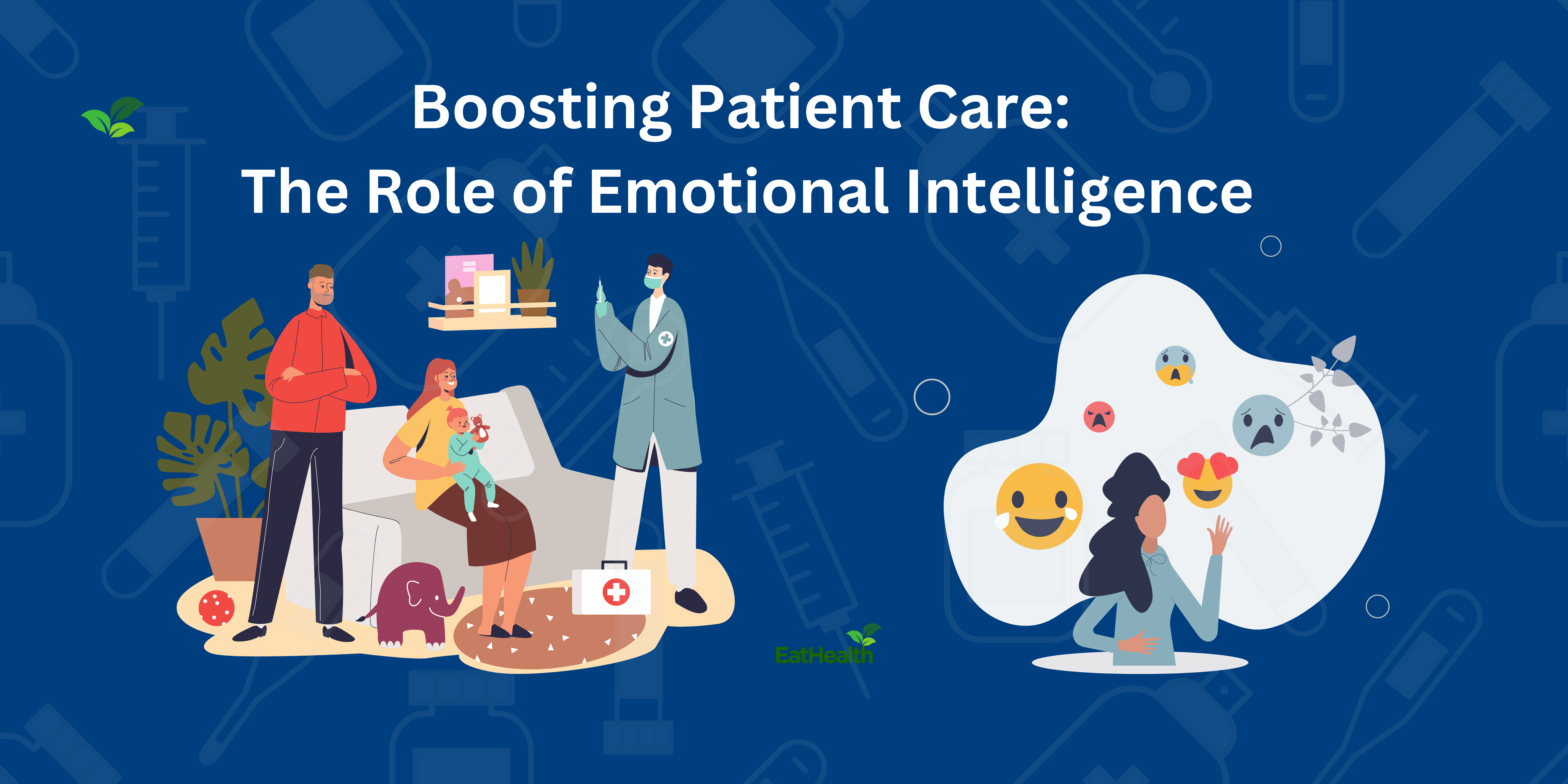Boosting Patient Care: Role of Emotional Intelligence
Empathy in Action: Elevating Healthcare Through Emotional Intelligence
Empathy in Action: Revolutionizing Healthcare Through Emotional Intelligence
In the intricate world of healthcare, the significance of emotional intelligence (EQ) in enhancing patient care cannot be overstated. As the bridge between clinical expertise and compassionate care, EQ offers a holistic approach to healthcare that prioritizes the emotional and psychological well-being of patients. This article explores the transformative role of emotional intelligence in healthcare, underscoring its potential to improve patient outcomes and foster a nurturing care environment.
The Essence of Emotional Intelligence in Healthcare
Emotional intelligence, the ability to recognize, understand, and manage our own emotions and those of others, is particularly crucial in healthcare settings. At its core, EQ involves five key components: self-awareness, self-regulation, motivation, empathy, and social skills. In healthcare, these components translate into better patient interactions, improved care delivery, and enhanced team collaboration.
The Impact of Emotional Intelligence on Patient Care
Healthcare professionals equipped with high EQ can navigate the complexities of patient emotions, leading to more effective communication, increased patient satisfaction, and trust. Studies have shown that emotional intelligence in healthcare providers correlates with higher patient satisfaction scores, reduced stress for both patients and healthcare workers, and improved health outcomes.
Emotional Intelligence in Clinical Practice
Incorporating emotional intelligence into clinical practice involves more than just bedside manners. It’s about creating meaningful connections with patients, understanding their fears and concerns, and adapting care plans to address their emotional needs. From the emergency room to chronic disease management, emotional intelligence plays a critical role in every healthcare encounter.
Training Healthcare Professionals in Emotional Intelligence
Despite its importance, emotional intelligence is often overlooked in medical education and training programs. This section delves into existing initiatives and methodologies for cultivating EQ among healthcare professionals, including workshops, simulation training, and reflective practice. The benefits of such training extend beyond patient care, contributing to personal growth and professional satisfaction.
Challenges and Solutions
Integrating emotional intelligence into healthcare is not without its challenges. Resistance to change, time constraints, and the undervaluing of soft skills in a traditionally evidence-based field can hinder the adoption of EQ-focused practices. This section explores strategies to overcome these obstacles, such as leadership support, cultural shifts within healthcare institutions, and embedding EQ training into medical education curricula.
The Future of Emotional Intelligence in Healthcare
As healthcare continues to evolve, the role of emotional intelligence will only grow in importance. Emerging trends, including the rise of telehealth and artificial intelligence, present new opportunities and challenges for EQ in patient care. This section speculates on the future landscape of healthcare, emphasizing the need for ongoing EQ development among healthcare professionals to meet the changing demands of patient care.
The integration of emotional intelligence into healthcare represents a paradigm shift towards more compassionate, patient-centered care. By embracing EQ, healthcare professionals can enhance patient experiences, improve outcomes, and cultivate a supportive care environment. As the healthcare industry progresses, the role of emotional intelligence in shaping the future of patient care remains undeniably crucial.
YouTube Channel for Health realted Educational Videos
it’s pivotal to highlight how emotional intelligence directly influences healthcare outcomes through real-world examples. These examples showcase the tangible benefits of integrating EQ into healthcare practices, reinforcing the article’s message about the critical role of emotional intelligence in enhancing patient care.
Example 1: Empathy Leading to Improved Patient Satisfaction
A notable example involves Dr. Jane Smith (a fictional name for illustrative purposes), a primary care physician known for her high patient satisfaction scores. Dr. Smith employs emotional intelligence by actively listening to her patients, acknowledging their concerns, and expressing genuine empathy. This approach not only helps in accurately diagnosing conditions but also in building trust. Patients feel valued and understood, which is reflected in the clinic’s improved satisfaction ratings and patient retention rates. This example illustrates how empathy, a key component of emotional intelligence, directly impacts patient satisfaction and loyalty.
Example 2: Emotional Self-regulation Reducing Medical Errors
John Doe (a hypothetical character), a nurse in a high-pressure intensive care unit, utilizes emotional self-regulation, another facet of emotional intelligence, to manage stress effectively. By recognizing his emotional triggers and employing stress-reduction techniques, John maintains a calm demeanor, even in emergency situations. This ability to stay composed under pressure not only enhances his decision-making skills but also minimizes the risk of medical errors. This example demonstrates how emotional self-regulation in healthcare professionals can lead to safer patient care environments.
Example 3: Team Collaboration Enhancing Patient Outcomes
The cardiac care team at Heart Health Hospital (a fictional institution) embodies the EQ component of social skills through effective team collaboration. By fostering open communication, mutual respect, and understanding among team members, the hospital has seen a significant reduction in post-operative complications among cardiac surgery patients. The team’s ability to work cohesively, leveraging each member’s strengths, directly contributes to enhanced patient outcomes. This example highlights the importance of social skills in healthcare teams for improving patient care.
Conclusion
These examples underscore the profound impact emotional intelligence can have on patient care. From individual interactions between healthcare providers and patients to the dynamics of healthcare teams, emotional intelligence plays a pivotal role in shaping positive healthcare experiences and outcomes. As the healthcare industry continues to evolve, the integration of emotional intelligence into patient care practices will be crucial for meeting the complex emotional and physical needs of patients. Embracing emotional intelligence is not just a pathway to better healthcare—it’s a commitment to a more compassionate, understanding, and effective healthcare system.





